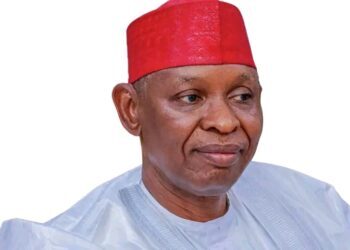The APM appeal at the Supreme Court on Monday, October 23, drew significant attention, raising concerns about judicial overreach and constitutional interpretations.
This article will explore the case, emphasizing key legal aspects and implications.
The APM’s appeal at the Supreme Court centred around a seemingly narrow but vital issue rooted in S 142(1) of the Constitution.
This section stipulates that a presidential candidate must nominate a valid associate to run alongside them.
In this case, President Tinubu initially nominated Alhaji Masari, who later withdrew to accommodate Sen Kashim Shettima.
However, this withdrawal occurred well beyond the stipulated 14-day period, as outlined in the proviso to S. 33 of the Electoral Act 2022.
APM’s main contention revolved around the invalidity of Shettima’s nomination due to this delay.
One of the most surprising aspects of the Supreme Court’s handling of this case was its assertion that APM’s case revolved around the double nomination of Shettima, who was nominated both as a Senator and a vice presidential candidate.
This claim came out of the blue and had no basis in the appellant’s submissions.
The Notice of Appeal, the Brief of Argument, and the Reply of APM on points of law contained no mention of this issue.
The Supreme Court’s stance became increasingly perplexing as the appeal hearing progressed.
It appeared that the Court had preconceived notions and was unwavering in its position, irrespective of the applicable law and established facts.
The Court even exerted pressure on the counsel to align with its unfounded perspective and withdraw the appeal, raising questions about the fair administration of justice.
This case brings to the forefront certain pronouncements from the APM tribunal case that warrant careful reconsideration.
Notably, it opens the door to the possibility of a presidential candidate standing without a running mate, highlighting the need for clarity in this aspect of the law.











